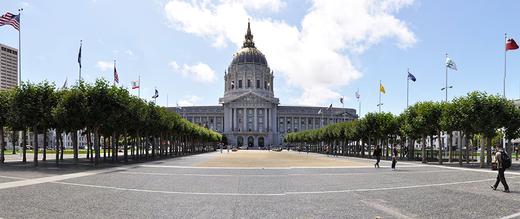The Bahá’í Faith, an independent world religion founded in the 19th century, centers on the belief in the oneness of humanity and the interconnectedness of all global systems. This belief is profoundly reflected in its relationship with the United Nations, an institution conceived to promote international cooperation and peace. Through the lens of Bahá’í teachings, the pursuit of universal peace transcends mere political diplomacy; it embodies a spiritual and moral obligation that is essential for humanity’s collective advancement.
At the core of Bahá’í doctrine is the idea that humanity is one family, united by a shared divine origin. This ideology resonates deeply with the foundational mandate of the United Nations, which seeks to foster a situation of amiable collaboration among diverse nations and cultures. Both the Bahá’í Faith and the United Nations emphasize the significance of global interconnectedness, recognizing that the challenges faced in the modern world — such as war, poverty, and environmental degradation — are multifaceted issues that cannot be resolved in isolation. The Bahá’í perspective on universal peace thus provides a philosophical underpinning that enriches the moral landscape of international relations.
One of the most compelling aspects of Bahá’í teachings is the call for a new world order, characterized by justice, equality, and unity. Abdu’l-Bahá, the son of the founder of the Bahá’í Faith, articulated that “the well-being of mankind, its peace and security, are unattainable unless and until its unity is firmly established.” This statement serves as a clarion call for proactive engagement in the pursuit of peace. The United Nations embodies this ideal as it seeks to overcome divisions among nations through dialogue and mutual understanding.
The Bahá’í Faith’s emphasis on education and empowerment correlates with the United Nations’ Sustainable Development Goals. Education, viewed as a vital instrument for transformation, is central to both the development and peace agendas. Bahá’í teachings underscore the importance of universal access to education as a foundational pillar for fostering a culture of peace. By equipping individuals with the tools necessary to engage in constructive discourse, societies can mitigate tensions and foster understanding among diverse populations.
Furthermore, Bahá’í texts advocate for gender equality, a principle resonant with the UN’s target of achieving gender parity globally. The belief that men and women are equal partners in the advancement of civilization posits that the empowerment of women is not merely a social issue but a critical component in the quest for global intercultural dialogue and peace. The UN’s initiatives for gender equality echo this sentiment, recognizing that inclusive development strategies yield comprehensive benefits for society as a whole.
The notion of collective security is another synergy between the Bahá’í Faith and the United Nations. The teachings highlight the imperative of transcending the nation-state paradigm in favor of a more cooperative approach to global security. In a world increasingly threatened by terrorism, environmental crises, and pervasive injustice, collective security necessitates that nations abandon unilateral approaches and embrace a spirit of mutual responsibility. The Bahá’í vision posits that true security is only achievable when the well-being of one nation is inherently linked to the well-being of all.
Bahá’í teachings also delve into the concept of international governance, proposing a structure for a federated world government that catalyzes global cooperation. This ideal aligns with the aspirations of the United Nations, which has established various frameworks for international law and human rights. The Bahá’í vantage point promotes the idea that a consultative approach to governance should prevail, encouraging nations to engage in collaborative decision-making processes. This methodology not only enhances the legitimacy of governance but also cultivates a sense of ownership among member states.
The profound interlacing of Bahá’í principles with the goals of the United Nations illuminates an essential observation: the aspiration for universal peace is intrinsically linked to spiritual and ethical dimensions. The Bahá’í Faith invites humanity to look beyond mere political solutions and to engage in a deeper transformational journey that emphasizes moral development, spiritual growth, and a profound commitment to justice.
Despite the evident alignment, one may ponder why this relationship captivates so much interest today. The answer lies in a collective yearning for an alternative paradigm of global engagement. Amidst rising nationalism, political isolationism, and discord, there emerges an appetite for a framework that embraces inclusivity and fosters unity. The Bahá’í perspective offers not mere theoretical constructs but a comprehensive vision for collective action, galvanizing individuals and nations alike toward a common destiny rooted in peace.
In conclusion, the interplay between Bahá’í teachings and the mission of the United Nations serves as a poignant reminder of the inherent potential for a globally orchestrated renaissance in human relations. By embodying the principles of unity, education, and collective responsibility, both the Bahá’í Faith and the United Nations champion the formidable endeavor of achieving universal peace. As humanity endeavors to navigate the complexities of the 21st century, this partnership stands as a beacon of hope, urging the world toward a horizon illuminated by harmony and camaraderie.
